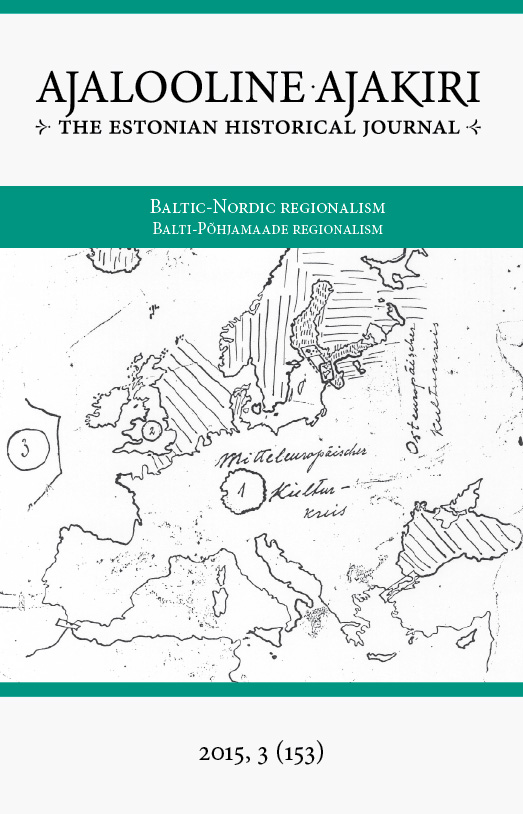Equilibrium in the Baltic: the Polish Baltic Institute’s view on Nordic and Baltic Sea cooperation in the interwar period [Kokkuvõte: Tasakaal Läänemerel: Poola Balti Instituudi vaatenurk koostööle Põhjamaadega ja Läänemere riikidega sõdadevahelisel ajal]
DOI:
https://doi.org/10.12697/AA.2015.3.05Abstract
As a result of the First World War, Poland regained independence and access to the Baltic Sea, which caused increased interest in maritime matters among Polish scholars. One of the manifestations of this interest was the founding of the Baltic Institute in 1925, the goals of which were to promote the vision of the Baltic Sea as an important part of the Polish nation’s life, construct a maritime identity in society, and argue for Polish access to the sea against German revisionist arguments. As was typical in Poland, the Baltic Sea and related issues were most often discussed from the point of view of Polish foreign policy and security, as well as the country’s place in the Baltic Sea region and in Europe. In the last years of the interwar period, the Institute also became more interested in cooperation in the Baltic Sea region and in Poland’s Scandinavian/ Nordic neighbours. Scandinavian neutrality and Nordic unity were discussed and analyzed in relation to Polish interests and foreign policy. One of the results of this analysis was a proposal to transform Scandinavian neutrality into a Scandinavian-Baltic version, thanks to which it would be possible to secure peace in Europe. Keywords: Baltic Sea region, interwar period, Baltic Institute, PolandDownloads
Download data is not yet available.
Downloads
Published
2015-10-12
Issue
Section
Artiklid / Articles

